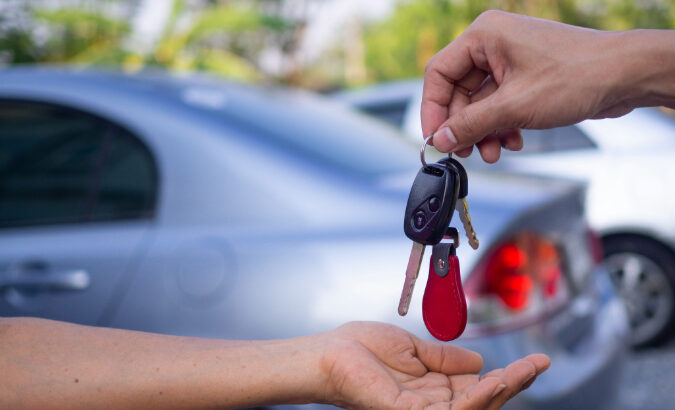
Many choose two-wheeled vehicles as transportation due to the ease of use, less maintenance and lower gas consumption. However, not all two-wheeled vehicles are the same. It’s important to look closely at the differences between mopeds and scooters before deciding which one is right for you.
What is a scooter?
A scooter is defined as a two-wheeled vehicle with a step-through frame and footrest platform. First developed in the 1900s, scooters are powered by a small engine and typically use an electrical charging system. Though many say scooters are very similar to motorcycles, what sets the scooter apart is its step-through frame. [1]
What is a moped?
A moped is a small, single-seater vehicle with foot pedals like a bicycle and a small gasoline engine. The word “moped” is a combination of the words “motorized” and “pedal,” which refers to the multiple methods used to propel the vehicle forward. Often compared to a motorized bicycle, what sets the moped apart is a bigger engine, higher maximum speed, turn signals and headlights. [2]
How old do you have to be to drive a moped or scooter?
The minimum age to legally drive a moped or scooter varies slightly from state to state. However, in most states, riders must be at least 14 to 16 years old with a valid moped permit, learner’s permit, intermediate driver’s license or full driver’s license. If the rider is under 18 years old, they will often need to have completed driver’s education and/or a rider training course. For more information on age requirements for your state, visit your state’s official DMV website. [3]
Do you need a license to drive a moped or scooter?
Most states require a motor vehicle license endorsement, but some states will allow a motorcycle endorsement instead. In some states, you need a license and/or registration to operate a moped or scooter. The only way to know you’re following the laws is to check your state’s laws on mopeds and scooters. [2]
What are the road rules for a moped and scooter?
Scooter and moped drivers must obey all signs, signals and traffic laws. Mopeds and scooters carrying two people must be equipped with a seat and footrest for the passenger. Some states have additional moped laws for two-wheeled rides, but all states prohibit riding between lanes in traffic. [4]
Do scooters and mopeds get good gas mileage?
On average, with a 50cc scooter, you can get about 100 miles to the gallon. Scooters have some limitations, and while some can get as many as 100 miles per gallon, the average tank can only hold two to three gallons. [5]
Do you need insurance for a moped or scooter?
Liability insurance for a moped isn’t required in 26 states; however, if you lease or finance your moped, your lender will most likely require you to insure your moped. Not concerned about theft or damage to your scooter? You might want to at least consider the right scooter coverage that helps pay for medical costs, property damage and bodily image to others, including your passengers. [6]
Sources:
[1] “Moped vs. Scooter vs. Motorcycle: Understanding the Differences,” motorcyclelegalfoundation.com/scooters-mopeds-and-go-peds
[2] “Moped vs. Scooter: What’s the Difference?” cardosystems.com/blog/moped-vs-scooter-whats-the-difference
[3] “How Old to Ride a Moped,” motorcyclezombies.com/scooters-mopeds/minimum-age-to-ride
[4] “Motorcycle, Scooter/Moped and Autocycle Safety,” ilsos.gov/departments/drivers/traffic_safety/mcysafety.html
[5] “How many miles per gallon do mopeds get?” edgehd.net/motorbike/how-many-miles-per-gallon-do-mopeds-get.html
[6] “Do you need insurance for a moped?” nationwide.com/lc/resources/powersports/articles/do-you-need-insurance-for-a-moped
Disclaimer:
The information included is designed for informational purposes only. It is not legal, tax, financial or any other sort of advice, nor is it a substitute for such advice. The information may not apply to your specific situation. We have tried to make sure the information is accurate, but it could be outdated or even inaccurate in parts. It is the reader’s responsibility to comply with any applicable local, state or federal regulations. Nationwide Mutual Insurance Company, its affiliates and their employees make no warranties about the information nor guarantee of results, and they assume no liability in connection with the information provided. Nationwide and the Nationwide N and Eagle are services marks of Nationwide Mutual Insurance Company. © 2022 Nationwide



